If you’re considering getting a betta fish, you might wonder if a small tank will suffice. After all, pet stores often sell these fish in tiny bowls or cups, so it’s easy to assume they don’t need much space. However, the truth is that bettas actually require a larger tank size to thrive.
Male bettas are known for their vibrant colors and flowing fins but can also be aggressive toward other fish. Because of this, they’re often kept alone in their own tank. Female bettas can live together in groups but still need plenty of space to swim and explore. So, do bettas do fine in small tanks? The answer is no – in fact, a tank that is too small can lead to health problems and a shortened lifespan for your fish. Generally, a tank size of at least 5 gallons is what experts recommend for a single betta, and larger tanks are better if you add any tank mates.
Table of Contents
Why Tank Size Matters for Betta Fish
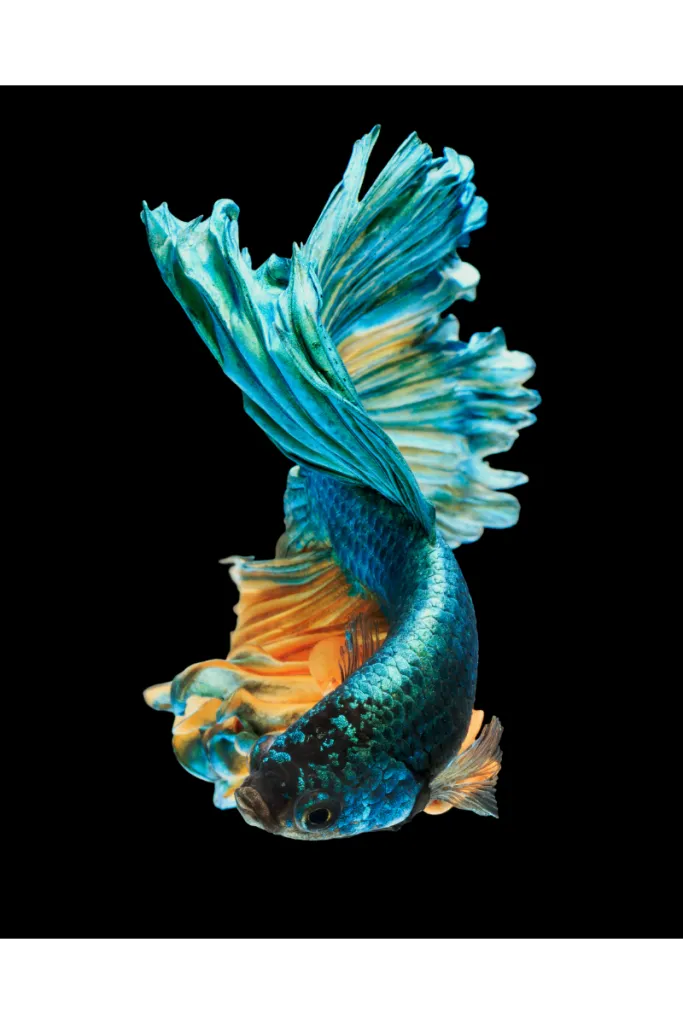
As a responsible betta fish owner, providing your fish with a suitable living environment is paramount. The tank size you choose for your betta fish is one of the most important factors to keep in mind. Here’s why tank size matters for betta fish:
Swim Space
Betta fish are active swimmers who need plenty of space to move around. A small tank can restrict their movement, leading to stress and health problems. A larger tank with ample swim space will keep your betta fish happy and healthy.
Stress
Betta fish are territorial and can become stressed if they don’t have enough space to claim as their own. A small tank can make them feel cramped and uncomfortable, leading to stress-related health issues. A larger tank with plenty of hiding spots and plants can help reduce stress and promote a healthy environment.
Oxygen and Water Quality
Betta fish require a lot of oxygen to survive, and a small tank can limit the amount of oxygen available. Additionally, a small tank can quickly become polluted with ammonia, nitrite, and nitrates, harming your betta fish. A larger tank with a proper filtration system can help maintain water quality and provide adequate oxygen for your fish.
Water Temperature
Betta fish are tropical fish and require a consistent water temperature between 76-82°F. A small tank can be challenging to maintain at a constant temperature, leading to stress and health problems for your fish. A larger tank with a heater can help maintain a stable water temperature, keeping your betta fish healthy and happy.
Bacteria
Betta fish require beneficial bacteria to break down waste and maintain a healthy environment. A small tank can limit the amount of beneficial bacteria that can grow, leading to poor water quality and health problems for your fish. A larger tank with a proper filtration system can provide ample surface area for beneficial bacteria to grow, helping to maintain a healthy environment for your betta fish.
In conclusion, tank size matters for betta fish. A larger tank with ample swim space, hiding spots, proper filtration, and a heater can provide a healthy environment for your fish. Always research and provide the best possible environment for your betta fish.
The Ideal Tank Size for Betta Fish
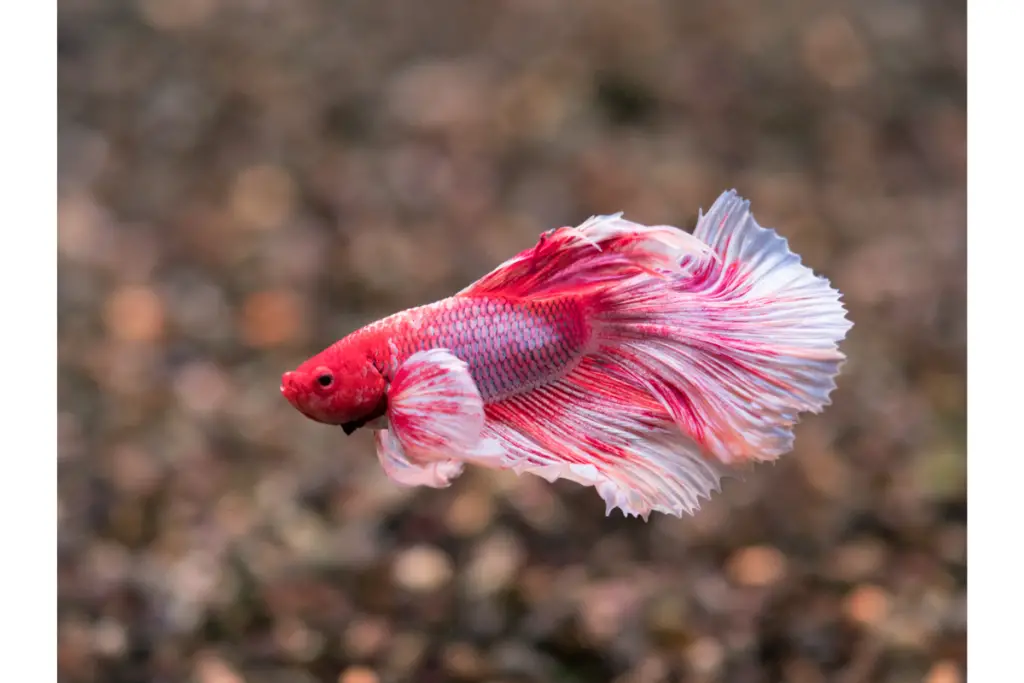
Regarding betta fish, the ideal tank size is vital to their well-being. Betta fish are colorful and active creatures requiring ample swimming and exploration space. Their aggressive nature and delicate fins make choosing the right size tank essential to avoid stress and injury.
Male Betta Fish
For male betta fish, a 5-gallon tank is the minimum recommended size. This size tank provides enough space for them to swim and exercise and allows for adding live plants and other decorations. A 10-gallon tank is even better, as it offers more room for your betta to explore and interact with its environment.
Female Betta Fish
Female Betta fish can live in groups, but having enough space for each fish is important. A 10-gallon tank is the minimum recommended size for a group of female Bettas. This size tank provides enough space for each fish to establish its territory and reduces the risk of aggression and stress.
When choosing a tank size, consider the size of your Betta fish. Some betta fish are larger than others, and a smaller tank may not provide enough space to swim comfortably. It’s also important to consider the color of your Betta fish. Brightly colored Bettas may require more space to showcase their beauty.
In addition to size, it’s important to consider the overall environment of the tank. Bettas are sensitive to water conditions, so it’s essential to maintain a clean and healthy tank. A filter and regular water changes are imperative to keep your Betta fish healthy and happy.
In conclusion, the ideal tank size for Betta fish depends on several factors, including their size, color, and behavior. A 5-gallon tank is the minimum recommended size for male Bettas, while a 10-gallon tank is even better. For female Bettas, a 10-gallon tank is the minimum recommended size for a group. Maintaining a clean and healthy environment is also crucial to their well-being.
Setting Up a Betta Fish Tank
When setting up a betta fish tank, there are several factors to keep in mind to ensure your betta fish thrives in its new environment. Here are some sub-sections to consider:
Tank Shape and Substrate
Betta fish prefer tanks that are wider than they are tall. A rectangular tank is ideal, as it provides plenty of swimming space and allows for the installation of a heater and filter. As for substrate, sand or gravel are good options, but avoid using rocks that have sharp or jagged edges, as they can damage your betta’s delicate fins.
Do Tanks Need Lids?
Yes, betta fish tanks should have lids to prevent your fish from jumping out. A lid also helps to maintain a stable water temperature and prevent debris from entering the tank.
Water Conditions
A filtration system is necessary to keep the water clean and oxygenated. Use a water conditioner to remove harmful chemicals from tap water before adding it to the tank. It’s also necessary to monitor the water temperature with a thermometer. Betta fish prefer warm water with a temperature between 76-82°F.
Decorations and Plants
Betta fish enjoy having plenty of hiding places in their tanks, so include ornaments, caves, and live plants like java fern to provide cover. Avoid sharp or rough decorations that could damage your betta’s fins. Adding ghost shrimp or snails can also help keep the tank clean.
Remember, the tank size should be at least 5 gallons or more when setting up a betta fish tank. A tank light is highly recommended, as to maintain a consistent day/night cycle. A heater is necessary to maintain a consistent water temperature, especially in colder months. A sponge filter is a good option for betta tanks, as it provides gentle filtration without creating too much water flow. Properly setting up your betta fish tank will ensure your fish is happy and healthy in its new home.
Maintaining a Betta Fish Tank
Maintaining a clean and comfortable tank is crucial when taking care of your betta fish. Here are some tips to help you keep your betta happy and healthy.
Water Changes and Maintenance
Regular water changes are essential for maintaining a healthy environment for your betta. Aim to change 20-30% of the water in your tank every week, using a fish net to remove any uneaten food or debris. It’s also important to keep an eye on the water conditions and quality, as bettas are sensitive to toxins in the water. Invest in a good quality filtration system and filter media to help keep your tank clean and clear.
Feeding and Diet
Bettas are carnivores and need a diet rich in protein to thrive. Offer a variety of foods, such as flakes, bloodworms, and brine shrimp, to stimulate your betta’s appetite. Be sure to feed your betta only what they can eat in a few minutes, as overfeeding can lead to health problems.
Behavior and Hiding Places
Bettas are naturally curious and enjoy exploring their environment. Provide plenty of hiding places, such as plants and caves, to give your betta a sense of security and privacy. Keep an eye on your betta’s behavior, as changes in activity level or appearance can indicate a problem with their health or environment.
Following these tips for maintenance, proper care, and diet can help ensure that your betta fish thrives in their tank.
Myths About Betta Fish Tank Size
As a betta fish owner, you might have heard various myths about the ideal tank size for your fish. Here are some common myths and misconceptions that you should know about:
Myth #1: Bettas can live in tiny tanks
This is one of the most common myths about betta fish tank size. Some people believe that bettas can thrive in small bowls or vases, but this is far from the truth. Bettas need a minimum tank size of 5 gallons, and 10 gallons is even better. Smaller tanks can quickly become polluted and stressful for your fish, leading to disease and an early demise.
Myth #2: Bettas don’t need a filter
While bettas can survive without a filter, using one is still highly recommended. Filters help keep the water clean and oxygenated, which is essential for your fish’s health. A filter also reduces the need for frequent water changes, making it easier for you to maintain your tank. Without one, you will need to change their water frequently.
Myth #3: Bettas don’t need a heater
Bettas are tropical fish that need a consistent water temperature of around 78-82°F (25-28°C). Invest in a good-quality heater and monitor the water temperature regularly. Without a heater, the water temperature can fluctuate, leading to stress and illness in your fish.
Myth #4: Bettas can live in groups
While female bettas can sometimes live together in a sorority, male bettas are solitary fish and must be kept alone. If you try to keep two male bettas together, they will fight and injure each other. It’s essential to provide your betta with its own tank, with plenty of hiding places and plants to explore.
Myth #5: Bettas can live in any container
Invest in a good-quality tank and equipment to ensure your betta lives a long and healthy life. Bettas need a tank with a proper filtration system, a heater, and plenty of space to swim and explore. Avoid keeping your betta in small containers, such as bowls or vases, as they can quickly become polluted and stressful for your fish.
In conclusion, many myths and misconceptions about betta fish tank size exist. It’s essential to provide your fish with a proper tank, filtration system, and heater to ensure they thrive. By understanding these myths and providing your betta with the best possible care, you can enjoy a beautiful and healthy fish for years to come.
Conclusion
In conclusion, the question of whether betta fish need small tanks is a controversial one. While some believe bettas can thrive in small tanks, experts have shown that they require larger tanks to live long and healthy lives.
It’s essential to remember that bettas are tropical fish and need warm water temperatures of at least 75 degrees Fahrenheit. They also need plenty of room to swim and hide, so a tank of at least 5 gallons is what is recommended for them.
Bettas have a labyrinth organ that allows them to breathe air from the surface, but they still require a filter to keep the water clean and healthy. A water heater is also necessary to maintain a consistent temperature.
While bettas are hardy and can survive in less-than-ideal conditions, providing them with a suitable environment is crucial to ensure they live a long and healthy life. Adding ornaments and other decorations to the tank can stimulate and enrich the fish.
In conclusion, betta fish do not necessarily need small tanks but require a suitable environment to thrive. By providing your betta with a tank that is at least 5 gallons in size, a filter, a water heater, and plenty of hiding places and decorations, you can help ensure that your fish lives a happy and healthy life.

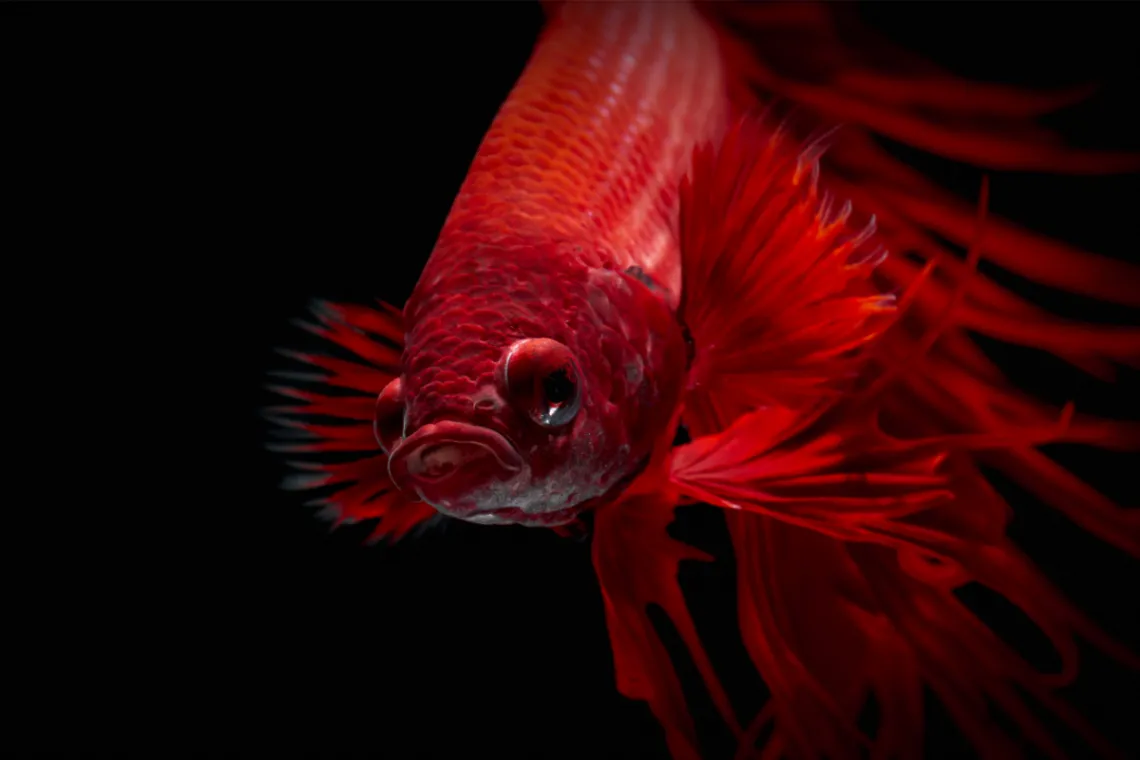

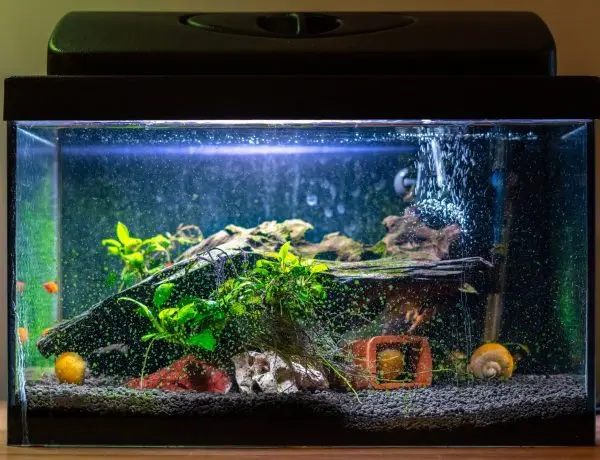
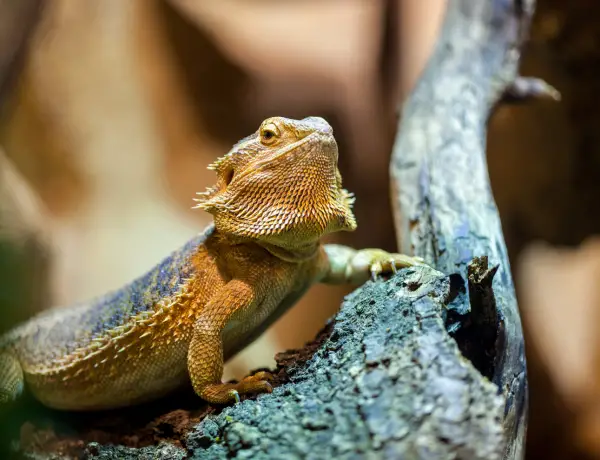
No Comments